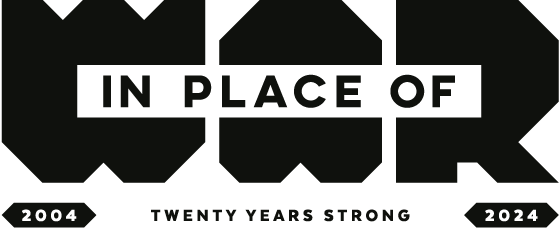ConArte / Mexico City, Mexico
Identity plays a key role in addressing all sorts of issues. Whether at the individual or societal level, if we don’t understand who we are and where we come from, how can we make decisions about the best way forward?
It’s a question that Mexico City organisation ConArte is facing head-on. Founded in 2006, ConArte manages a dizzying array of educational and cultural activities that use the arts to promote a culture of peace, resilience and inclusivity in communities throughout Mexico and beyond.
Working in collaboration with public schools, cultural centres, and community spaces, ConArte leads numerous classes and workshops in music, dance, theatre, and the visual arts, with a particular emphasis on exploring local and indigenous contemporary expressions. This helps people of all ages gain a powerful sense of self-awareness and expression, which in turn cultivates broader impulses toward compassion and community. It’s a humanistic approach to education that is particularly lacking in public schools, especially in areas of high social risk.
Not surprisingly, ConArte’s unique approach was born from personal experience in the community of La Colonia Guerrero, which sits on the periphery of Mexico City’s historic centre and confronts pervasive threats such as kidnapping, human trafficking, and criminal gang violence. As if these challenges aren’t enough, many of the local children are products of displaced families who live in poverty and deal with domestic violence on a regular basis.
In response, ConArte took a former electrical substation in La Colonia Guerrero and turned it into a multi-purpose cultural space known locally as La Nana. Today, La Nana hosts a dynamic variety of artistic workshops for kids and adults from all walks of life, in addition to art exhibitions and auctions that feature local artists, some of whom learned their crafts through these workshops and training. The system promotes a deep sense of loyalty among former students, such that many of them later become teachers in these same programmes.
Importantly, ConArte’s leaders are committed to promoting a strong sense of cultural rights and inclusivity that permeates everything they do. And it’s more than just talk, as illustrated by their efforts to provide equality of access for people from marginalised communities such as women, indigenous groups and people with disabilities.
While many of these activities promote art as a tool for peacebuilding and self-expression, there is also a strong emphasis on art’s ability to construct empathetic and resilient communities. A clear example of this is ConArte’s participation in a reinsertion programme that helps former prison inmates adapt to their new lives once released.
In a remarkable twist, ConArte launched this initiative after La Nana was robbed by local criminals. Rather than lament their significant losses, ConArte embarked on a two-year investigation of the factors driving criminal activity, particularly the difficulties former inmates face when leaving prison and how this often leads to repeat offences.
Through La Nana, a select number of former inmates now participate in programmes such as sensitivity training and self-expression through the arts, which often serves as a kind of healing or emotional release in an environment that promotes a culture of acceptance and belonging. They also receive guidance on finding employment in creative and other fields.
This programme says everything about ConArte’s commitment to the power of identity, and using the arts as a transformative tool to address and eventually overcome our most challenging human circumstances.
Website
conartemx.net
Facebook
@ConArteAC
Instagram
@conartemexico
Twitter
@conartemexico
YouTube
@ConArteMexico
